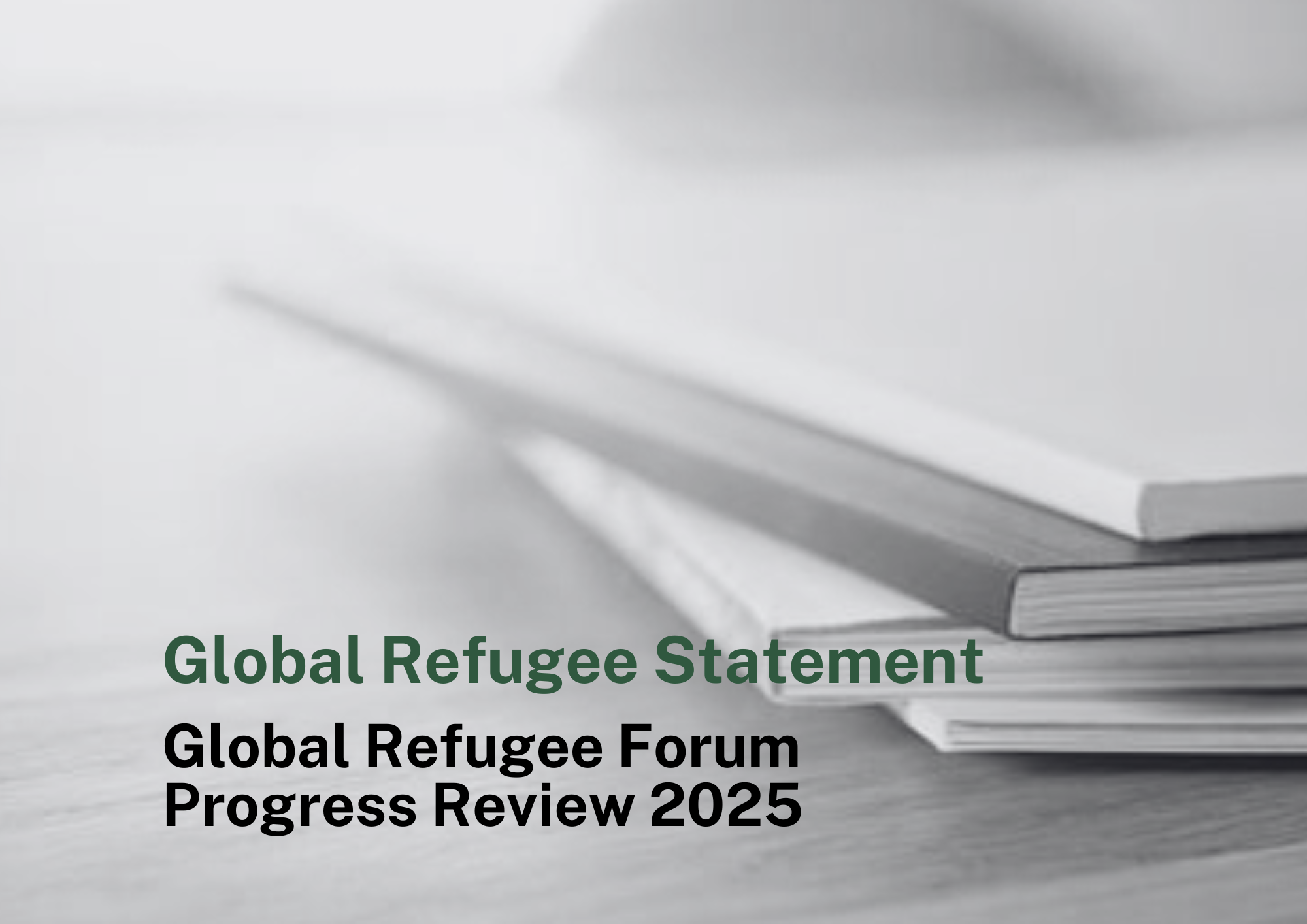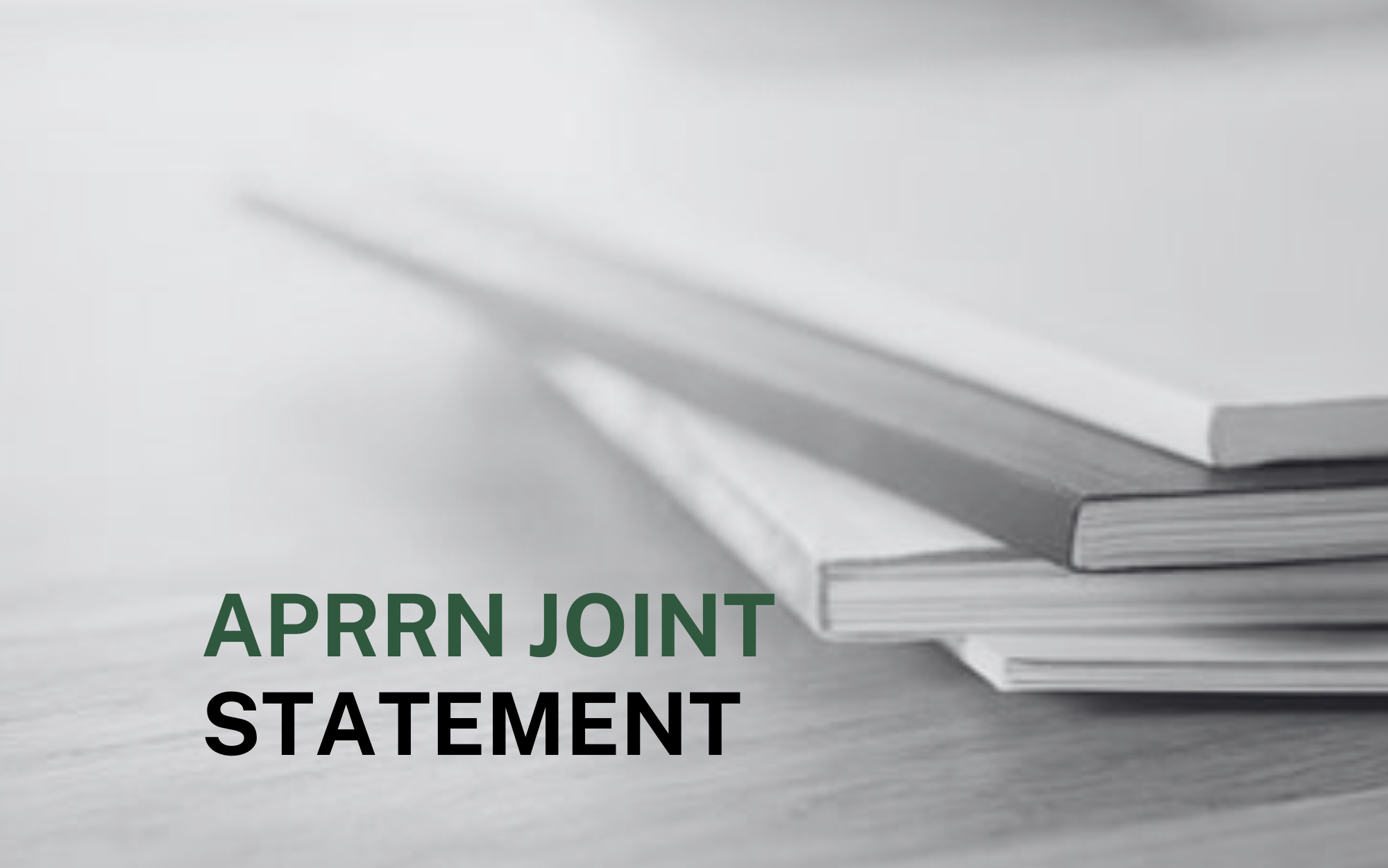URGENT STATEMENT: Global response to COVID-19 should not undermine the right of asylum
23 March 2020
The Asia Pacific Refugee Rights Network (APRRN) further reiterates our grave concern over the impact of border-closure measures implemented by governments around the world on the right to seek asylum from persecution.
While APRRN understands the public health emergency confronting States and their populations around the world, and is supportive of actions taken by protection and response actors to stem the spread of COVID-19, it cannot stand idle as this fundamental human right and foundational tenet of international refugee law is potentially undermined. We are wary of steps taken globally – in Europe, North America, Asia and the Pacific – that threaten refugee access to protection.
On 17 March, Ursula von der Leyen, President of the European Commission, officially announced the closure of the EU’s external borders for a 30-day period, thereby implementing an unprecedented travel ban for all foreigners into the Schengen area. This measure was quickly followed by an increasing number of EU Member States taking the unilateral decision to close their national borders. As a result, countless refugees are being stranded at the EU’s borders, unable to access protection. Additionally, several EU countries, such as France and Italy, have already suspended access to refugee status determination (RSD) processes for asylum seekers as well as processing of registered asylum claims. Belgium, Denmark, Hungary, Greece, Malta, the Netherlands, Norway, and Spain have also taken steps that challenge or ‘suspend’ asylum procedures. These steps effectively disenfranchise refugees of needed protection, exacerbating their vulnerability – not only to threats from which they are fleeing - but also to COVID-19 response.
Additionally, APRRN expresses grave concern over the suspension of all Search and Rescue (SAR) operations in the Mediterranean, following the imposed quarantine by Italian authorities late February, of the last two NGO rescue ships in operation in the Central Mediterranean, namely the Ocean Viking and Sea Watch-3.
While these humanitarian workers are currently prevented from providing life-saving assistance, and as the international community is understandably fully mobilised to tackle the COVID-19 virus, unlawful interception and push-back operations nonetheless continue in the Mediterranean, resulting in the forcible return of migrants and refugees to Libya, despite recognition by the UN and the European Court of Human Rights that Libya is not a safe port of disembarkation.
Similarly, APRRN deplores the instrumentalisation of COVID-19 by global leaders to further stigmatize and vilify non-citizens and further serve the interests of restrictive immigration policy. APRRN is deeply alarmed by the recent decision of the President of the United States to turn back all asylum seekers and undocumented migrants attempting to enter US territory from the southern border, denying due process. This action is not only in breach of the principle of non-refoulement - the cornerstone protection against return based in the 1951 Refugee Convention and the 1984 Convention Against Torture - but it also sets a dangerous global precedent.
In Asia and the Pacific, border closures by Australia and New Zealand threaten asylum seeker access to key hosting states, and provide a dangerous precedent for regional hosting states, including Malaysia and Thailand. At the time of writing, increasingly strict border and travel measures – including border closure and a shutdown of international flights – are also being implemented in India, Pakistan, Nepal, South Korea, Sri Lanka and elsewhere. These measures threaten protection for Rohingya, Afghans, and other persecuted populations.
In light of such events, APRRN reiterates the absolute and non-derogable nature of the principle of non-refoulement, both under International Refugee Law and Human Rights Law, and hereby urges all governments to uphold refugee rights. It further calls on governments to ensure that the exceptional and precautionary measures taken to respond to COVID-19 be compliant with the human rights protections under national and international law.
-END-
The Asia Pacific Refugee Rights Network (APRRN) is a network of 400+ civil society organisations and individuals from 28 countries committed to advancing the rights of refugees in the Asia Pacific region. APRRN aims to advance the rights of refugees and other people in need of protection through joint advocacy, capacity strengthening, resource sharing and outreach.
Media Contact:
Janeen Sawatzky, Programme Coordinator, APRRN
Te;: +66 (0) 98 252 5102 Email: janeen@aprrn.info Fax: +66 2 234 2679
Themba Lewis, Secretary General, APRRN
Tel: +66 (0) 99 481 1595 Email: themba@aprrn.info Fax: +66 2 234 2679
Recommended

Dec. 15, 2025
Global Refugee Statement – Global Refugee Forum Progress Review 2025
Around the world, families are running out of places to go. The scale of global displacement remains extraordinarily high, with 117.3 million people forced to flee, not because they chose to move, but because staying meant persecution, violence, or the collapse of their basic rights and safety. Behind every statistic is a person who once had a home, a community, and a future rooted in the ordinary rhythms of life. This reality reminds us that the systems designed to protect people in times of crisis are under severe strain.

Sept. 22, 2025
Upholding Not Undermining International Law Civil Society Open Letter to States
In advance of this week’s UN General Assembly High-level meeting, speeches by Heads of State and Government and reported efforts to enlist UN Member States in an attempt to undo international legal protections for refugees, 271 civil society organisations released an open letter to UN Member States calling on them to uphold, preserve, strengthen, and celebrate international refugee, human rights, and humanitarian treaties—and to reject efforts to undo or undermine legal norms.

July 21, 2025
APRRN deeply saddened by the loss of Ravi Hemadri
For over 25 years, Ravi dedicated his life to community mobilisation, training, advocacy, and research. Our community of practitioners and advocates working on the rights of refugees and other vulnerable people on the move in Asia Pacific has lost a friend and colleague. But his legacy will continue to inspire those who worked with him. Our heartfelt condolences go out to his family and loved ones.